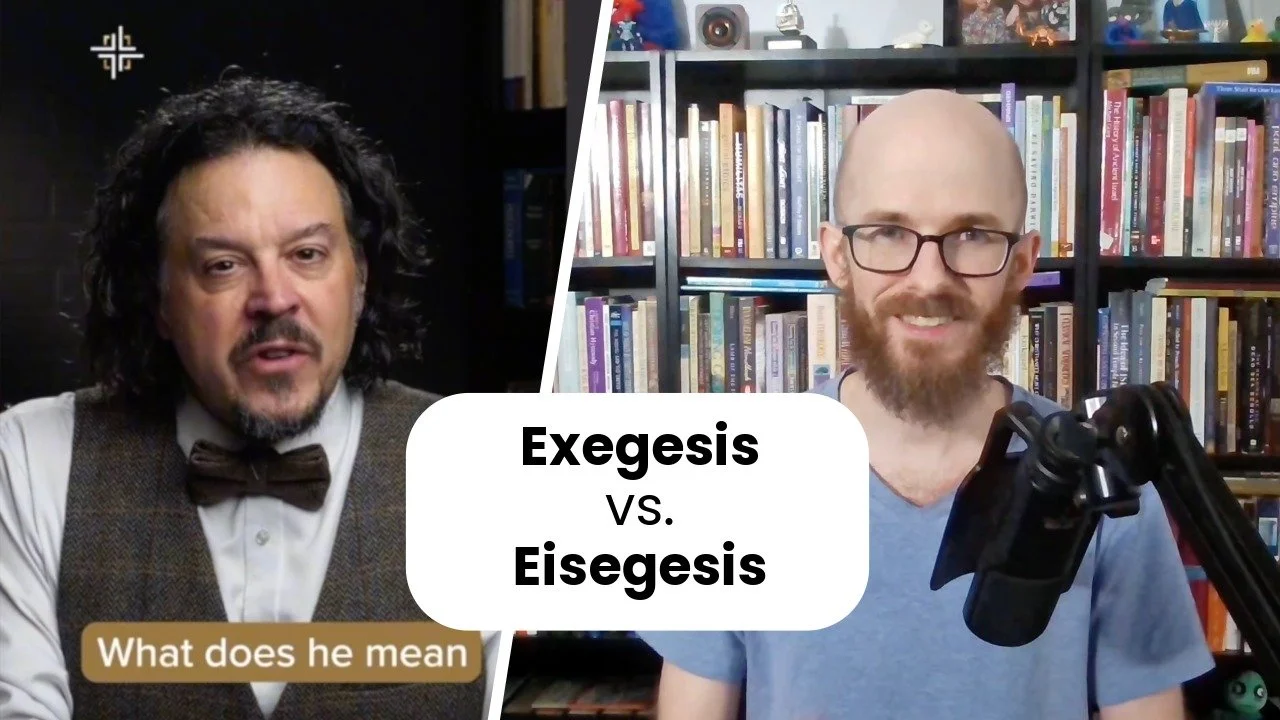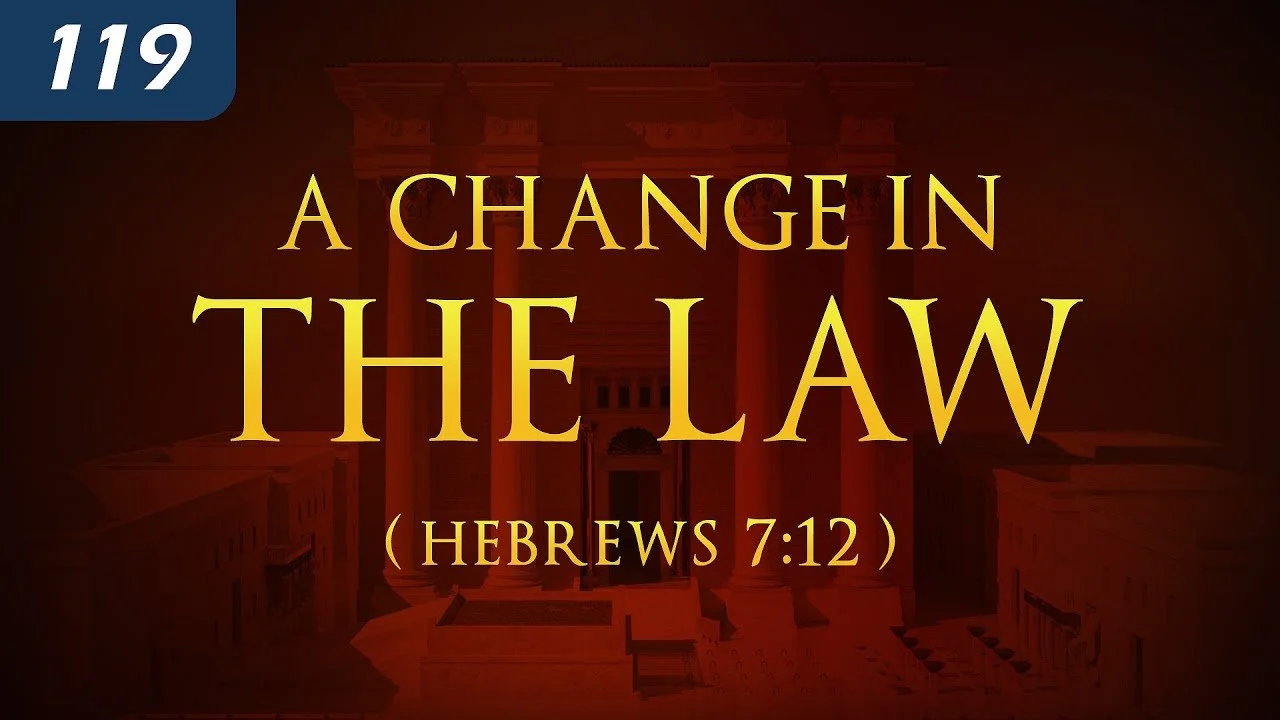What Death Teaches Us About Life
In this week’s Parashah Point on the Torah Portion titled, Ha’azinu, we see Moses is told that he is about to die. What does knowing that we are going to die teach us about how we should live? In other words, what does death teach us about life?
Transcript
Welcome to another episode of Parashah Points—short thoughts from the weekly Torah Portion.
This week’s Parashah Point comes from Ha’azinu, which is Hebrew for “Listen,” and it goes from Deuteronomy 32:1 to Deuteronomy 32:52.
This Torah Portion consists mostly of the Song of Moses, which is a prophetic warning to Israel about the punishment that would come upon them for their sins as well as a promise of God’s ultimate redemption. The parashah concludes with Moses’ death foretold.
There’s a lot we can talk about in this Torah Portion. Today we’re going to talk about what we can learn by thinking about death.
Toward the end of this week’s Torah Portion, God informs Moses that he is about to die. Here is what
He says:
Deuteronomy 32:48-50
That very day the Lord [YHWH] spoke to Moses, “Go up this mountain of the Abarim, Mount Nebo, which is in the land of Moab, opposite Jericho, and view the land of Canaan, which I am giving to the people of Israel for a possession. And die on the mountain which you go up, and be gathered to your people, as Aaron your brother died in Mount Hor and was gathered to his people
Imagine being told that you are about to die. What a sobering word this must have been for Moses! After this, the last two chapters of Deuteronomy tell of how Moses blessed the people of Israel and then he went up a mountain to see the land of Promise, and then he died. Just like that. Then the people mourned Moses’ death for thirty days before moving forward with the calling God had given them.
How often do you think about the fact that you’re going to die? A lot of us are uncomfortable with the topic of death. We try to avoid thinking about it as much as possible. But according to the book of Ecclesiastes, there are valuable lessons we can learn about life by thinking about death. Here is what it says:
Ecclesiastes 7:1-5
A good name is better than precious ointment, and the day of death than the day of birth. It is better to go to the house of mourning than to go to the house of feasting, for this is the end of all mankind, and the living will lay it to heart. Sorrow is better than laughter, for by sadness of face the heart is made glad. The heart of the wise is in the house of mourning, but the heart of fools is in the house of mirth. It is better for a man to hear the rebuke of the wise than to hear the song of fools.
Let’s break this down. The passage says that it’s better to have a good name than precious ointment. That is to say, it’s better to have good character than awesome, expensive stuff. Why? Because at the end of your life, all that matters is who you are. When you die, nobody is going to talk about the cool house or car or whatever that you acquired. They are going to talk about how good of a dad, mother, husband, wife, or friend that you were. How often do you think about developing good character as opposed to getting material things?
The passage says that the day of death is better than the day of birth, which is completely contrary to our culture. In our culture, we celebrate birthdays and life! There’s nothing wrong with that. But according to Ecclesiastes, the day of death is better.
However, the day of death is better only for the person with a good name. If you just died with a bunch of stuff and you didn’t have good character, it’s not a good day. Hugh Hefner, the founder of Playboy, was a rich, powerful person. But he didn’t have a good name. His life’s work consisted of profiting from the sexual exploitation of women. That’s how he’s remembered. But if you’ve lived your life well for God’s glory, the day of death is a day of celebration. Yes, it’s sad, but it’s the end of your journey, and when you awake, you will be in the presence of God, and you will experience a joy that can’t be fully grasped in this lifetime.
Ecclesiastes says that it’s better to go to the house of mourning than the house of feasting, because this is the end of all mankind. In other words, whether you’re rich or poor, a successful businessman or WalMart cashier—you’re going to die. All mankind ends up in the same situation. Therefore, it’s good to spend time in the house of mourning—thinking about death, because that’s where we all end up. We are to “lay it to heart”—that is, we are to allow this reality to affect us deeply. It will impact our decisions so that we live our lives in light of the fact that we’re going to die someday, which will help us focus on the things that really matter rather than wasting time.
The passage says that sorrow is better than laughter. So often we try to avoid sorrow. We try to distract ourselves when we’re feeling sad. But according to Ecclesiastes, it’s good to allow ourselves to be sad— it’s good for our heart. The idea that believers are supposed to be happy all the time is simply unbiblical. We should allow ourselves to be real with God and others. Deep, meaningful relationships—going beyond the superficial—is what really makes life truly worth living.
The passage says that it’s better for a man to hear the rebuke of the wise than the song of fools. In other words, listen to the wise advice of Solomon. We ought to take his message to heart. We ought to spend some time in the house of mourning, thinking about death. It’s not comfortable. It can even be painful. But it’s good.
Psalm 90:12 says, “So teach us to number our days that we may get a heart of wisdom.” The Bible not only speaks against sinful behavior but also foolish behavior. In addition to walking in holiness, we are called to walk in wisdom. And one of the ways you become wise is by numbering your days— remembering that one day you are going to die.
So what are you doing with your life? Are you wasting your time chasing the wind? Or are you serving God and building His Kingdom, forming deep and meaningful relationships with those around you? The book of Ecclesiastes concludes, “God will bring every deed into judgment” (Ecclesiastes 12:14). One day you will stand before the throne of God, and He will judge your every deed. This life is short. Start taking it seriously.
Thank you for joining us for another Parashah Point!
About David Wilber
David is first and foremost a passionate follower of Yeshua the Messiah. He is also a writer, speaker, and teacher.
David’s heart is to minister to God’s people by helping them rediscover the validity and blessing of God’s Torah and help prepare them to give an answer to anyone who asks about the hope within them (1 Peter 3:15)…
































